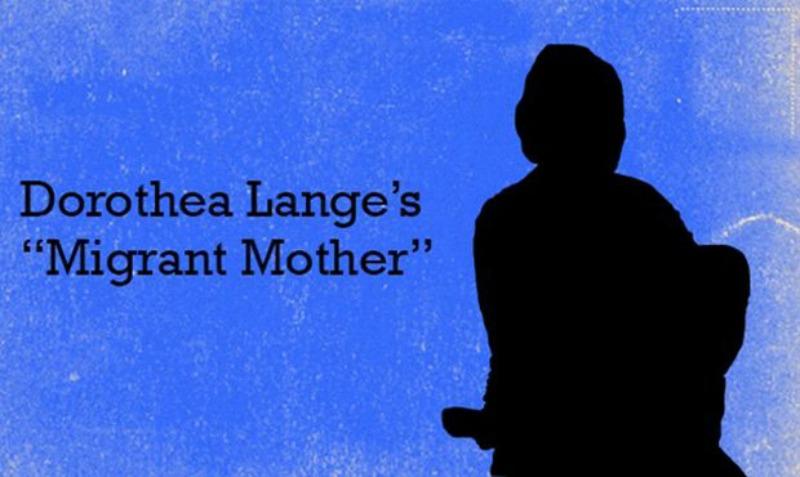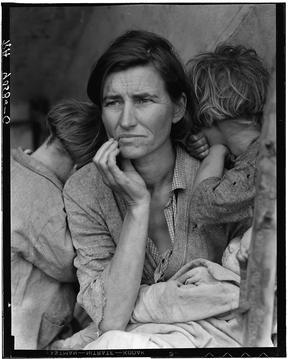American Icons: Migrant Mother
This is America’s image of hard times.
“Migrant Mother” was one of thousands of pictures Dorothea Lange took on assignment for the federal government, documenting the poverty of the Dust Bowl. But this was the one that stuck,coming to symbolize all those suffering in the Great Depression. Later, Lange would complain, “People think I haven’t made anything else!”
Lange had been a portrait photographer in San Francisco, posing the city’s wealthy and successful, and her compositional instincts helped turn Florence Thompson into a Madonna figure. But because the photo was commissioned by the government, it wasn’t copyright-protected. And over time, as her image was endlessly reprinted, adapted, satirized, used in ads for perfume and luggage, Thompson grew bitter.
Can any single image taken now ever imprint itself on our consciousness the way “Migrant Mother” did? “Great images will continue to bubble to the top,” says Sarah Meister, a photography curator at the Museum of Modern Art in New York. “Although in this era of image proliferation,it’s harder and harder.” But photographers will still look to images of hardship to find deeper truths. “Who’s that woman?” wonderedLaToya Ruby Frazier, a photographer and MacArthur Fellow, when she first saw “Migrant Mother” in photo history books. “How did it help her reveal what was happening in those moments for her and her family?”
Unlike Lange, who spent only moments with Thompson, Frazier has spent years photographing herself, her mother and grandmother, and the physical decline of their community — pictures that were collected in the book “The Notion of Family.”Frazier comes from Braddock, Pennsylvania, a dying steel town. In one diptych image, she shows her mother during a test for epilepsy, and the hospital being torn down. “If I am living in this industrial ruin that has been abandoned, and there’s no one here from the media covering this and no one telling our story, how do I pick up the camera and start to document it?”
(Originally aired April 19, 2013)
Our coverage reaches millions each week, but only a small fraction of listeners contribute to sustain our program. We still need 224 more people to donate $100 or $10/monthly to unlock our $67,000 match. Will you help us get there today?

